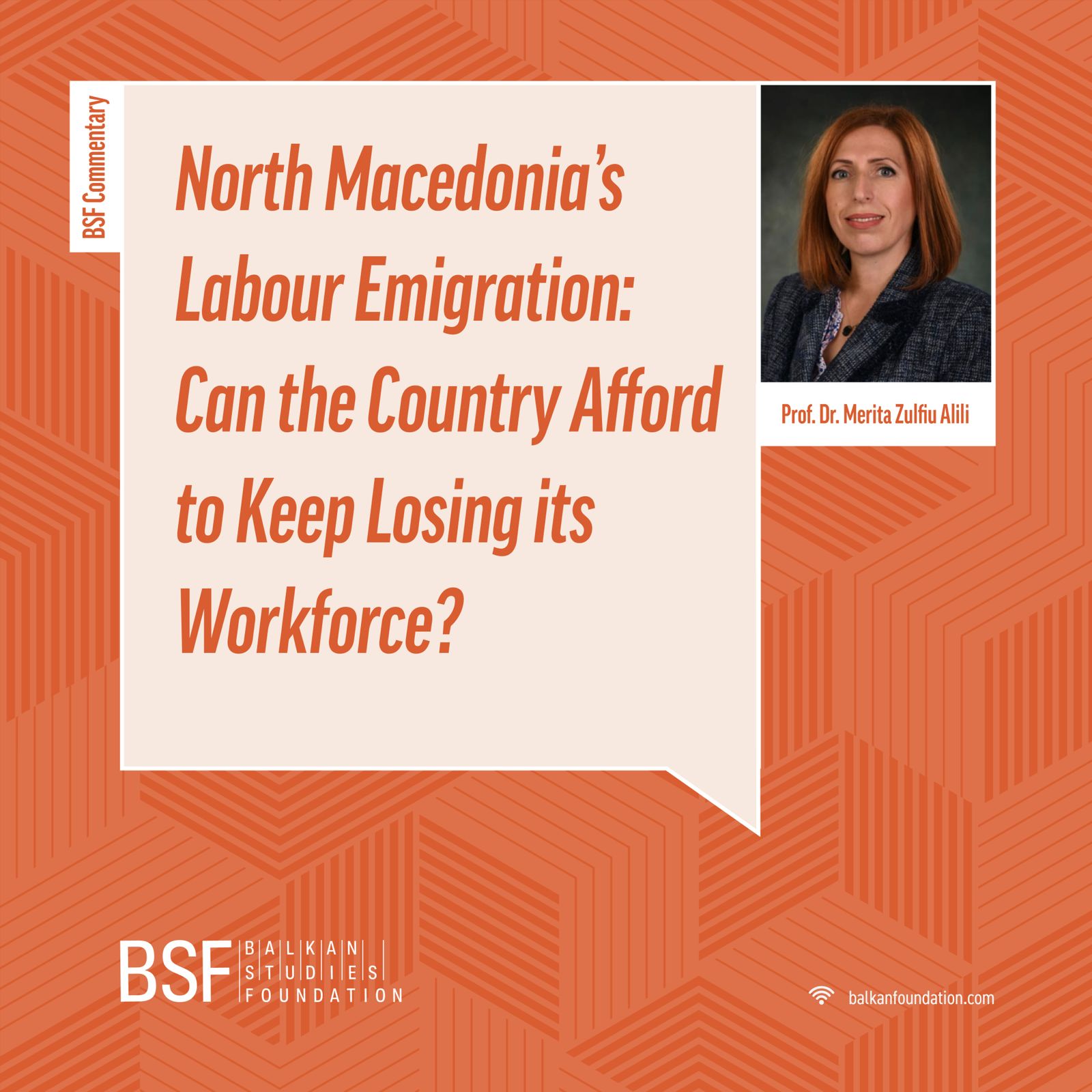
Prof. Dr. Merita Zulfiu Alili
/
As North Macedonia continues to struggle with socio-economic transformation, it is also facing a persistent and increasingly pressing challenge: the emigration of its working-age population. In recent years, thousands of citizens, particularly the young, educated, and professionally skilled, have left the country in search of better opportunities abroad. While migration is a natural part of global mobility, the scale and composition of this exodus raise a critical question: can North Macedonia afford to keep losing its workforce?
Emigration from North Macedonia is not a new phenomenon, but its scale is now alarming. About 38% of the population has emigrated globally, with 18% heading to OECD countries. The trend is most pronounced among the young and educated: over 55% of students and 38% of university staff express intentions to leave. A study by the Friedrich Ebert Foundation found that 42.67% of young people in North Macedonia want to move abroad. Since 2012, the working-age population has shrunk by 6%, with projections of a 15% decline by 2050. This “brain drain” is particularly acute in sectors like healthcare, IT, and education, where the loss of talent is eroding the country’s capacity for innovation and public service delivery.
The migration of workers from North Macedonia is primarily driven by economic constraints. Research clearly indicates that low wages, lack of security, and poor working conditions force people to leave the country rather than enter the local labour market. As of early 2025, the average monthly net salary stands at 43,050 denars (approximately €700), while the minimum wage was recently raised to about €400 (24.379 den) in March 2025. These figures remain significantly lower than European averages, with hourly wages in North Macedonia approximately eight times less than the European mean.
North Macedonia is facing a labour market paradox: even though unemployment remains high—12.5% in early 2024, with youth unemployment even higher (29.6% in 2023)—businesses still struggle to fill open positions. According to the State Statistical Office, the job vacancy rate raised to 1.93% in the fourth quarter of 2024, up from 1.27% in 2016. The highest vacancy rate (3.47%) is in accommodation and food services, while public administration and defence have the lowest (0.13%). Small and medium-sized businesses (10–49 employees) and the Pelagonia region are most affected, and the largest number of vacancies (2,149) are for professionals and scientists.
This situation is mainly caused by two factors: a mismatch between the skills that job seekers have and what employers need, and the ongoing emigration of qualified workers. Many young people and professionals are leaving the country in search of better opportunities. As a result, labour shortages are slowing economic growth, which in turn encourages even more people to leave. This creates a vicious cycle that threatens the country’s long-term development and stability.
To effectively address North Macedonia’s workforce emigration crisis, policymakers should focus on raising wages and improving working conditions in key sectors, aligning education and training with the needs of the labour market, and creating clear career development opportunities for young professionals. The government should also support entrepreneurship, simplify business procedures, and offer incentives such as reintegration assistance, tax breaks, and knowledge transfer programs to encourage the return of emigrants and greater engagement from the diaspora. North Macedonia can improve labour force retention and better match labour supply with demand by harmonising its labour standards and employment regulations with neighbouring countries, expanding cross-border vocational training and work-based learning opportunities, and moving toward EU membership by adopting European labour market rules. At the same time, the government should use real-time labour market information systems to monitor which occupations and skills are in demand, and provide targeted active labour market policies such as upskilling, reskilling, and career guidance to help workers gain those skills. This integrated approach will strengthen the country’s labour market, reduce skills mismatches, and help retain talent to meet economic needs. Strong governance, public-private partnerships, and regular evaluation are crucial to ensure these measures reduce emigration and help secure North Macedonia’s long-term economic stability.